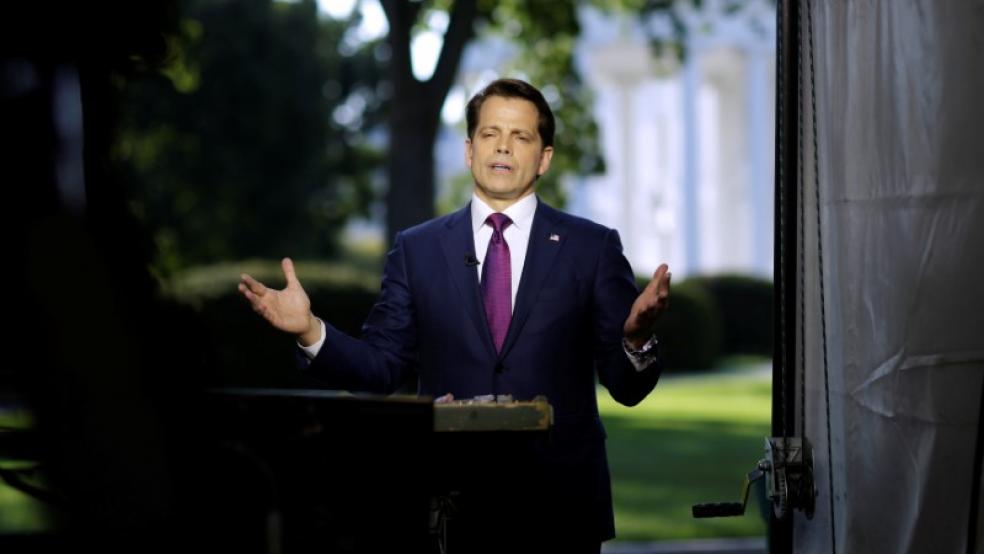BOSTON (Reuters) - President Donald Trump's executive order on Thursday making it easier for churches to dabble in politics kept faith with his promise to evangelical Christians who helped him win the White House, but could end up benefiting his opponents as well.
Leaders of the U.S. religious left, a rising force of opposition to Trump's hard-line stance on immigration and healthcare, said they were poised to benefit from the move, which lifts the risk of religious groups losing their tax-exempt status if they advocate for particular candidates."This is going to backfire on Trump," said the Rev. Jennifer Butler, chief executive of progressive policy group Faith in Public Life. "We are morally outraged at what is going on and we are appalled at the weaponization of religion."The group plans to mobilize voters who view some of Trump's policies as immoral. While the group does not endorse candidates, those voters in the 2018 midterm elections would back candidates who oppose those policies. Trump's order gives religious groups more liberty to do so without jeopardizing tax-exempt status."We're going to be mobilizing millions of voters to turn out at the polls and vote their values," Butler said. Sojourners, a Washington-based progressive Christian network that advocates for immigrants and the poor, also believes more of its members will now feel free to speak out against Trump's policies."I wouldn't tell people who to vote for but I would tell them what to vote against and this might encourage more churches to speak out against him," said Jim Wallis, the group's founder. "Donald Trump's use of racism and racial bigotry is unchristian. His attack on refugees is anti-Christian."Trump has repeatedly and angrily denied allegations that his policies are racist, calling immigration limits essential for national security. Before signing the order, the Republican president cited historically black churches and slain civil-rights leader Martin Luther King Jr. as drivers of U.S. social progress.'SWORD OF DAMOCLES'Evangelical and Roman Catholic leaders as well as a prominent U.S. rabbi joined Trump when he signed the order instructing the Internal Revenue Service to "alleviate the burden of the Johnson Amendment," the 1954 law prohibiting organizations with tax-free status, including churches, from participating in political campaigns or supporting particular candidates.The move by Trump, who appealed to religious conservatives in his 2016 presidential run, was widely praised by religious organizations that felt hemmed in by the law or openly violated it."We will not allow people of faith to be targeted, bullied or silenced any more," Trump, who criticized the Johnson Amendment during his campaign, said at the ceremony. Rescinding the law would require an act of Congress.Ralph Reed, a longtime leader of the religious right and chairman of the Faith & Freedom Coalition, praised Trump's executive order in a statement, saying it removed a "sword of Damocles that has hung over the faith community for decades."Several prominent leaders of the religious left noted that neither Republican nor Democratic policy stances lined up neatly with any major religion's teaching and said the move could fracture congregations by encouraging leaders to take sides."Once faith leaders become partisan, it hijacks their moral authority and their impartiality in this hyper-partisan environment," said Rabbi Jonah Pesner, director of the Religious Action Center of Reform Judaism.The American Civil Liberties Union had threatened a lawsuit to stop the order, but later backed off, saying the most onerous provisions had yet to be enacted and that it fell far short of meeting Trump's pledge to "totally destroy" the Johnson Amendment.Several leaders interviewed said they worried that Trump's move could be unevenly enforced, allowing conservative Christian churches to promote political candidates without extending the same exemptions to other views or other denominations."The biggest religious liberty issue now for me is how Christians are going to protect the liberty of Muslims," said Wallis, of Sojourners. "That's the top issue, more than whether they have to hire gay people."Ibrahim Hooper, spokesman for the Council on American-Islamic Relations, said his group would keep urging U.S. imams to speak out on moral issues with political consequences, but would urge them to remain nonpartisan.He wondered if all religious leaders would follow that guidance."These kind of moves, particularly by this administration, have a vast ocean of unintended consequences," he said. (Reporting by Scott Malone; Editing by Peter Cooney)Trump's religious freedom order may give opponents an unintended boost

POOL



